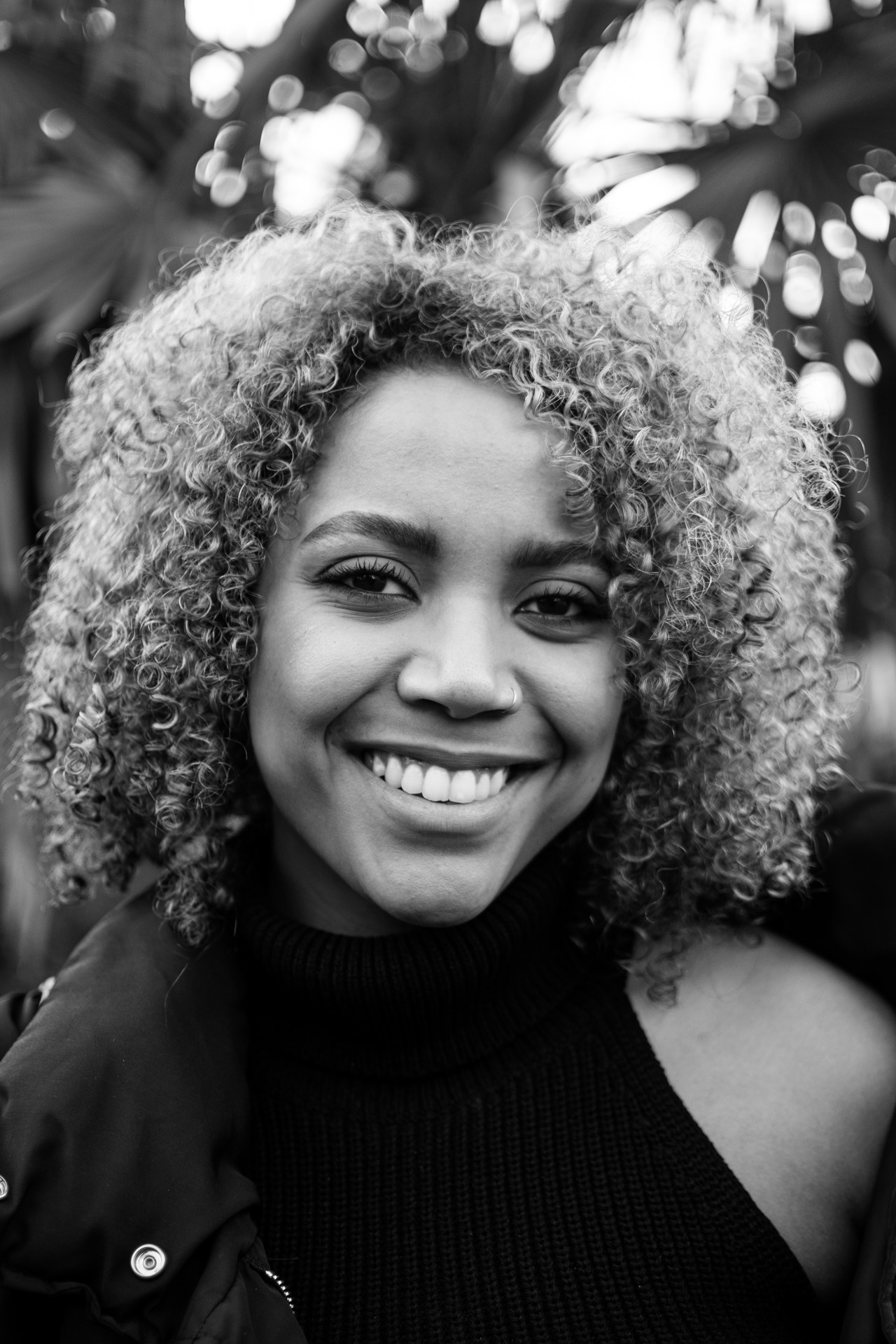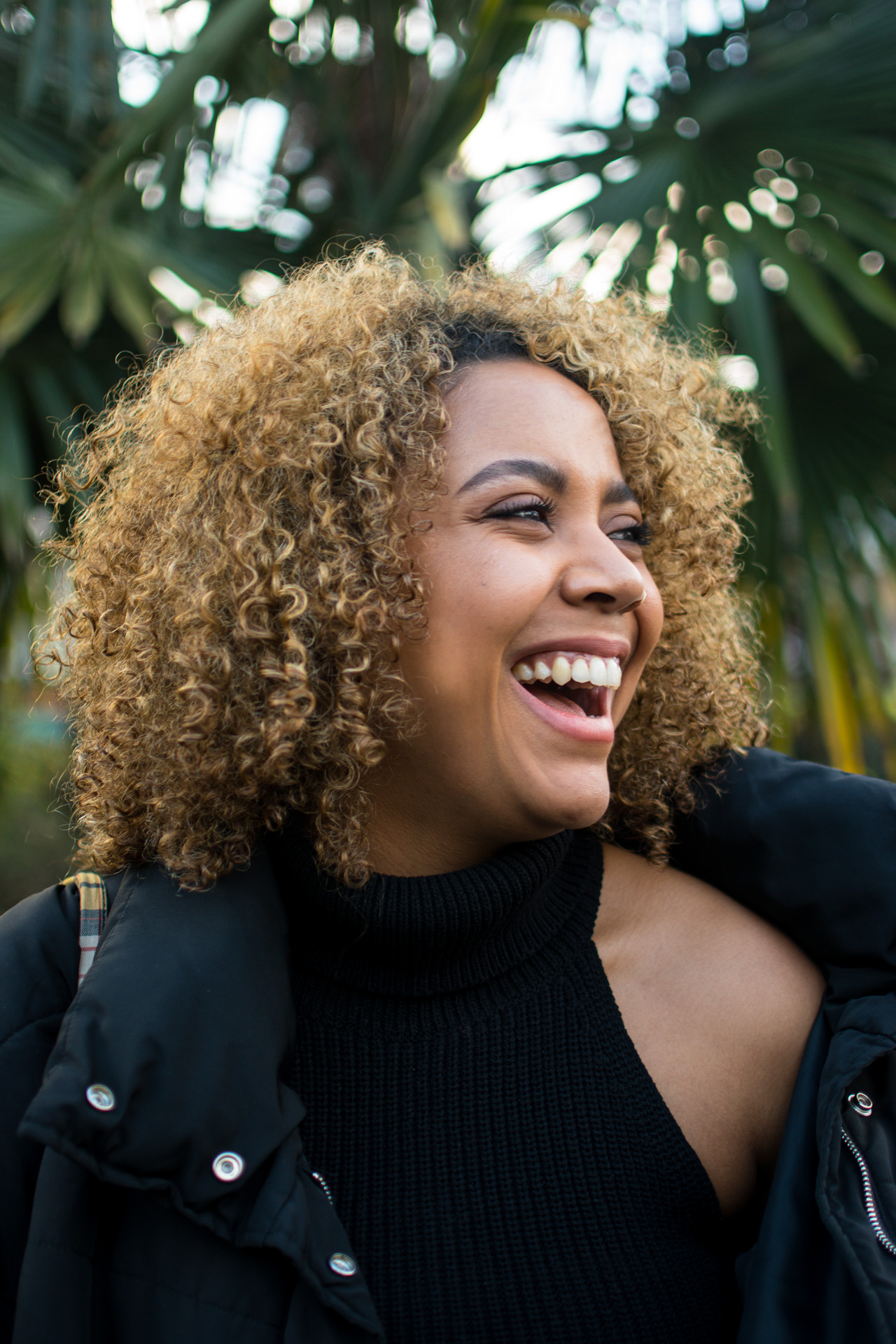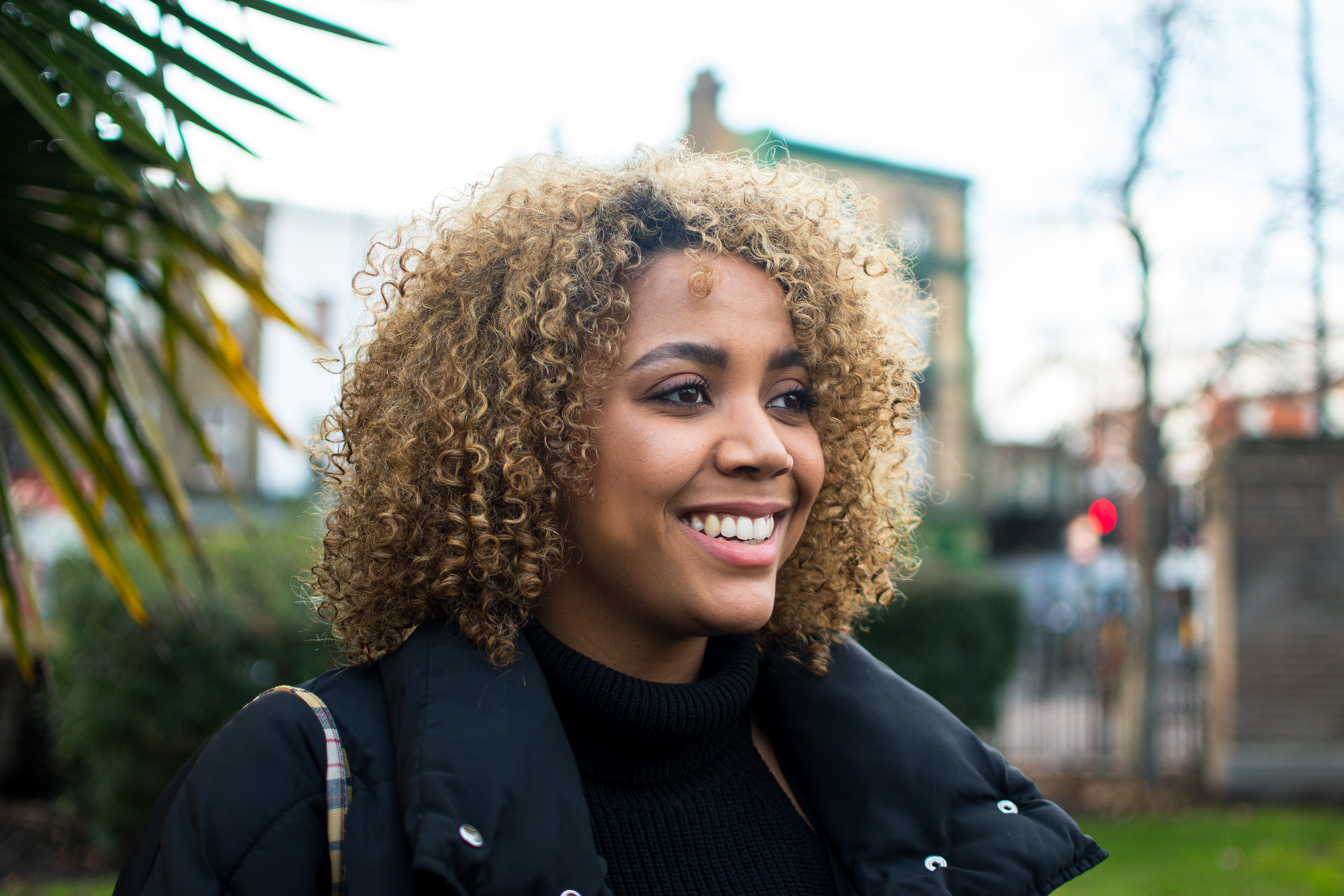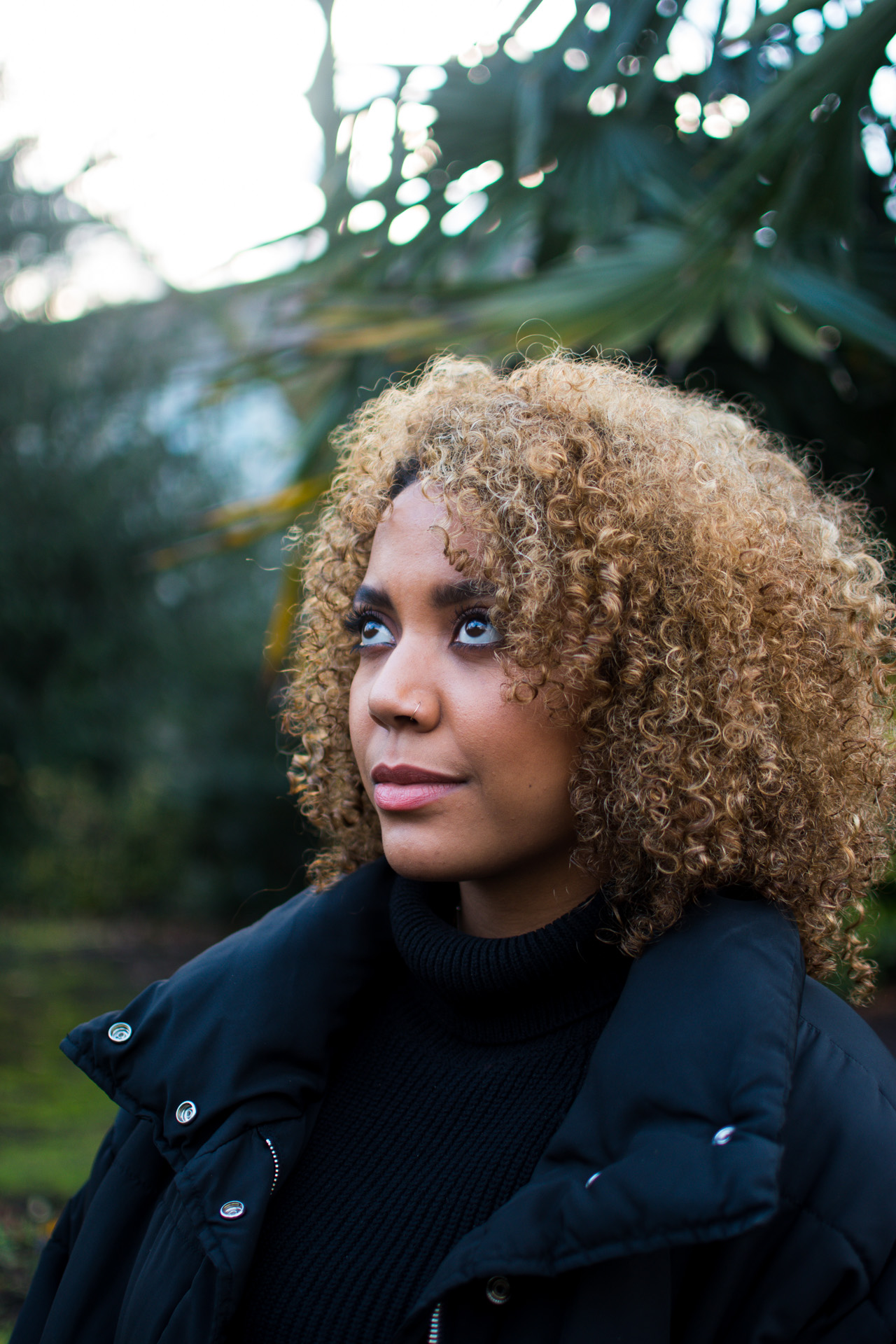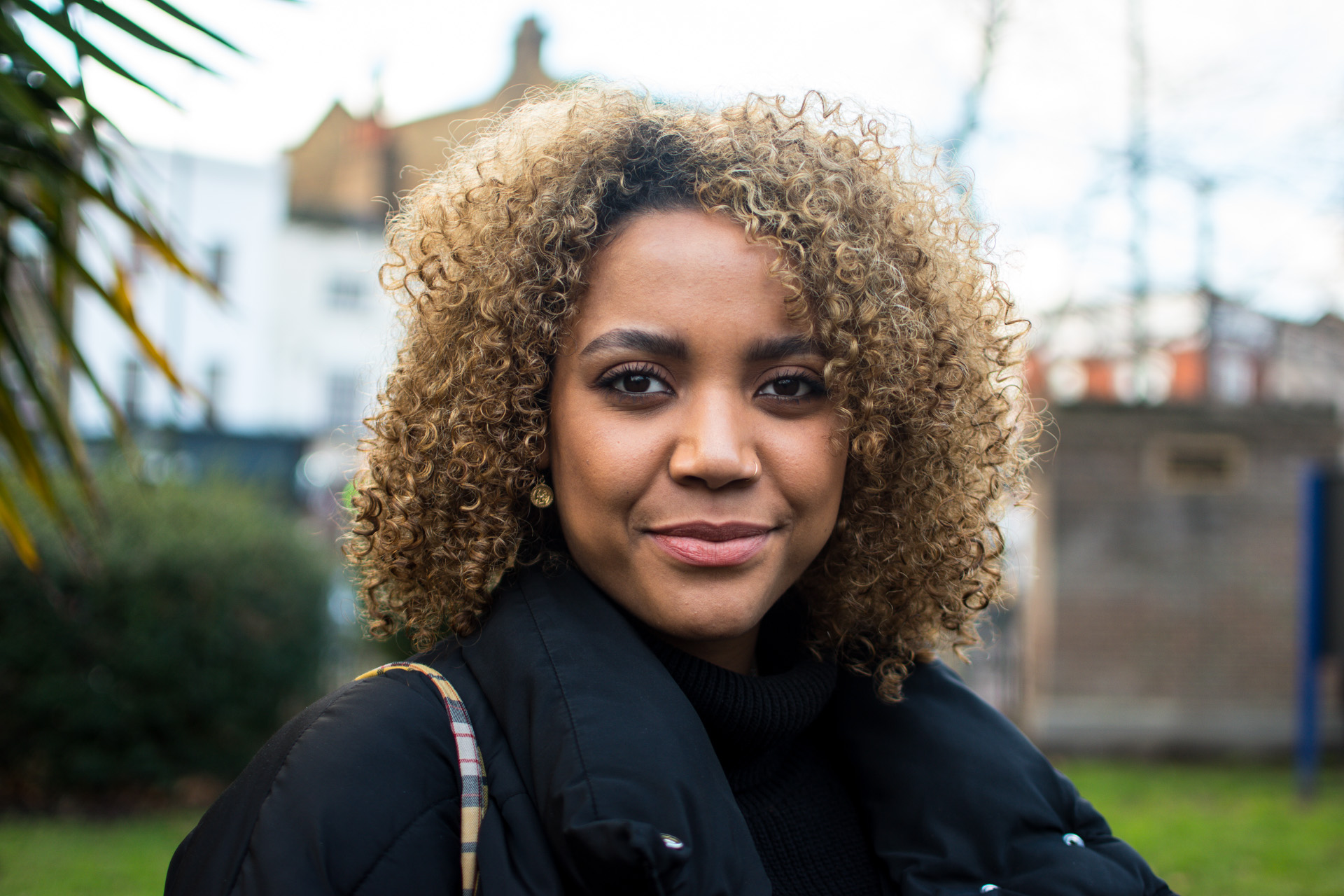Nathalie
Nathalie, 24
Ethnicity: Swedish + Nigerian (Edo)
City/County grew up in: Sweden, Milton Keynes
City/County of residence: London
*audio below
Describe your heritage
I am of Swedish and Nigerian heritage but I was raised here in the UK.
What to you, makes you Black British Nigerian? How do you define it?
It’s definitely passed on through generations. It’s definitely passed on through my dad. My dad is Nigerian and it’s this beautiful thing where you are Nigerian but you also have so much of the British culture ingrained in you. I think it’s a little bit more complicated for me because I’m also Swedish. So I guess for me I wouldn’t know how to define it, but I know I think of myself as Black British and Nigerian because I’m Nigerian through descent, but I’m British through association, through living here and growing up here, and taking on so much of the culture, and making copious cups of tea - all that sort of thing.
What challenges do you/have you faced that relate to your identity as a Black British Nigerian?
As a Black British Nigerian some of the things I’ve found difficult is knowing where to fit in. I know many people (especially mixed-race people such as myself), find it quite difficult to know if you’re Black enough, if you’re White enough, do you hang out with the Black kids, do you hang out with the White kids, and I struggled with that until I was quite a bit older. It was actually my Black girlfriends who made me realise that it was okay to be mixed and I fit in whatever space I say I fit in, and that’s not predetermined by anyone else, it’s just where I feel at home. So that was quite difficult, but I’ve got through it, and now I truly do feel like whatever I choose to identify as, it’s just a blessing. I definitely lost touch with my Swedish half, so now I can go back and identify with it and proudly call myself Swedish as well as being Black and British and Nigerian, and I think that’s kind of beautiful.
What do you love about being Black British Nigerian?
The community. I know sometimes us Nigerians can say we don’t like other Nigerians, but we love each other, you feel it. I just started a new job, and the one and only Black person on the team just happened to a Nigerian and he’s been my big brother ever since. It’s just a sense of being at home; there’s such pride in being a Nigerian and it kind of just seeps over into everything you do, and it makes you proud to see other Nigerians do other things, just being in all these spaces. Yeah. That’s the best thing for me – to always feel at home where there’s another Nigerian. That’s a beautiful thing.
Do you think this country values your identity?
When it comes to our identity as a Black British Nigerians being appreciated here in the UK, I feel like sometimes it is, sometimes it isn’t. My dad has always made very cognisant of how not just Black people but how Nigerians are portrayed, especially in the media. So I feel like if a Nigerian does something good, we are celebrated and our identity is appreciated, but if we do something bad maybe not so much. The first example I can think of is Anthony Joshua; he’s everyone’s hero and a good guy when he does well, but not so good, not so appreciated when he doesn’t. There are certain times people will be like “Oh he’s British” and certain times people will be like “Oh he’s of Nigerian descent”. You see it all the time and my dad can be very cognisant of that. Because of that I think there are times we are celebrated when it’s beneficial, and then there are times when we are demonised for no good reason at all. So it’s a double-edged sword.
What does the future look like for Black British Nigerians - what are your hopes for us?
I think the future for Black British Nigerians looks very bright, I’m very excited. Especially living here in London. It is world domination that we are striving for. I mean we Nigerians are in all spaces. The other day I went to a yoga class, and I was being taught by this British Nigerian woman, and I never thought I’d see the day, but we are in all spaces and we bring such Nigerian pride to everything that we do. And it’s just so exciting to see us in artistic spaces, and scientific spaces, and science spaces and literary spaces; all of these spaces that - I mean I can’t speak for all Nigerians – all of these spaces that the majority of my Nigerian friends probably weren’t encouraged to go into. I was very much told “You should be a Doctor”, and then to grow up and see all these friends who are artists and I’m like “That’s amazing”, because you have to work so much harder to get to where you’re going. It’s exciting, it’s empowering, it makes me want to get up and do something new, do something better and elevate everyone else around me, because that’s exactly what I feel like when I go to say a yoga class and I’m being taught by a Nigerian woman. I just feel elevated, I feel like [there’s] nothing that we can’t do. So to summarise…world domination.

